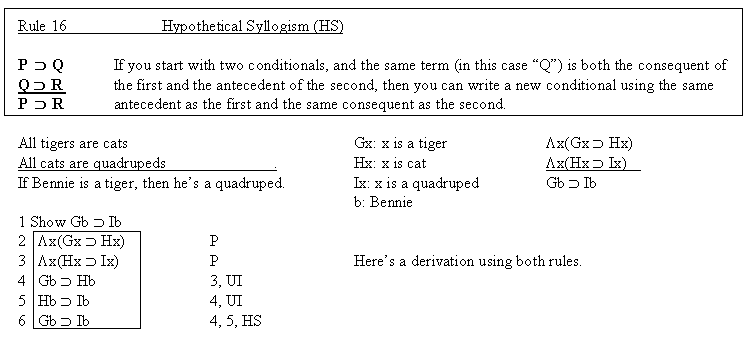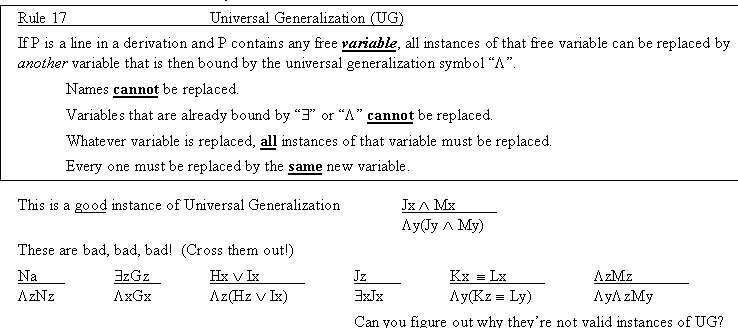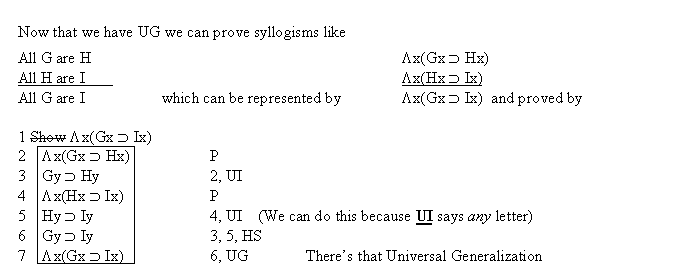Logic Chapter Twenty Two
Next Chapter
Here's a fairly simple, easy to understand rule. It works very well
with Universal Instantiation.

But what if we want to prove something like 
Well, we need a rule like the following:

Hints: Can names be replaced? What about bound
variables? How many instances must be replaced? Does UG use "∃?"
(Remember, a name is a lower case letter from "a"
to "t," a variable is a lower case letter from "w"
to "z"
In logic, a syllogism
is a three line argument in which all three lines (two premises and a
conclusion) are universal statements. Aristotle, who founded formal
logic, studied syllogisms intensively and came up with all kinds of
rules and special drawings to explain the relationships between
different types of universal statements, and to determine the validity
of various types of syllogisms. I don't teach this stuff because it's
very difficult, very boring, and the logic of it all can be
communicated effectively without Aristotle's
terminology.

Quiz preparation: Mark the following true or false based on
the definition of UG above.
1. In UG, names, free variables and bound variables can be replaced.
2. In UG, only names and free variables can be replaced.
3. In UG, only names and bound variables can be replaced.
4. In UG, free variables and bound variables can be replaced.
5. In UG, only names can be replaced.
6. In UG, only free variables can be replaced.
7. In UG, only bound variables can be replaced.
8. In UG, free variables can be replaced by the same variable.
9. In UG, free variables can be replaced by a different variable.
10. In UG, bound variables can be replaced by the same variable.
11. In UG, bound variables can be replaced by a different variable.
12. In UG, names can be replaced by a variable.
13. In UG, we must replace all instances of whatever it is we are
replacing.
14. In UG, we can replace any instances of whatever it is we are
replacing, but we don't have to replace all of them.
15. In UG, all instances of whatever is replaced must be replaced with
the same variable.
16. In UG, different instances of whatever is replaced may be replaced
with different variables.
Copyright © 2007 by Martin C. Young
Next Chapter
This Site is Proudly Hosted By:





